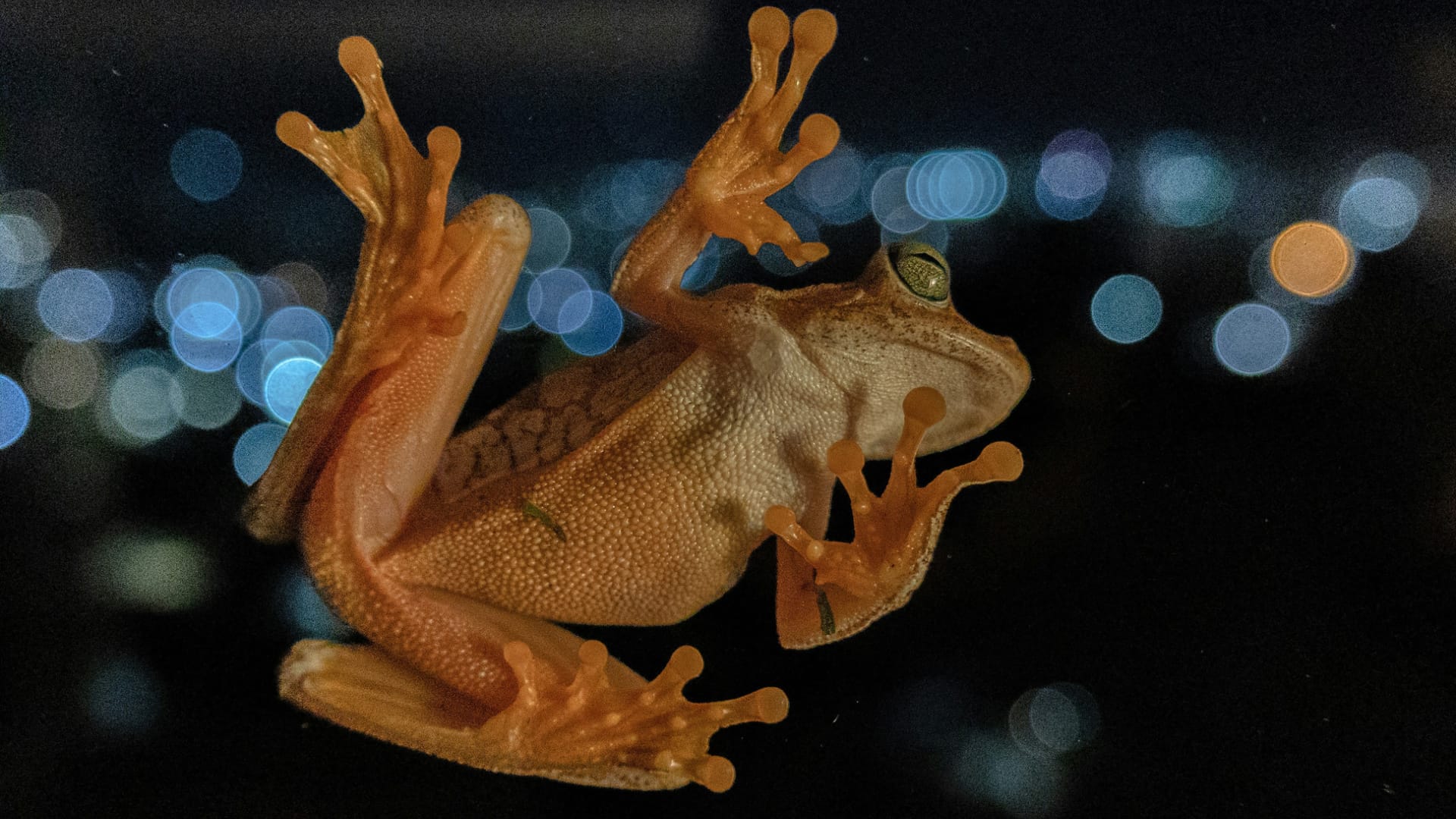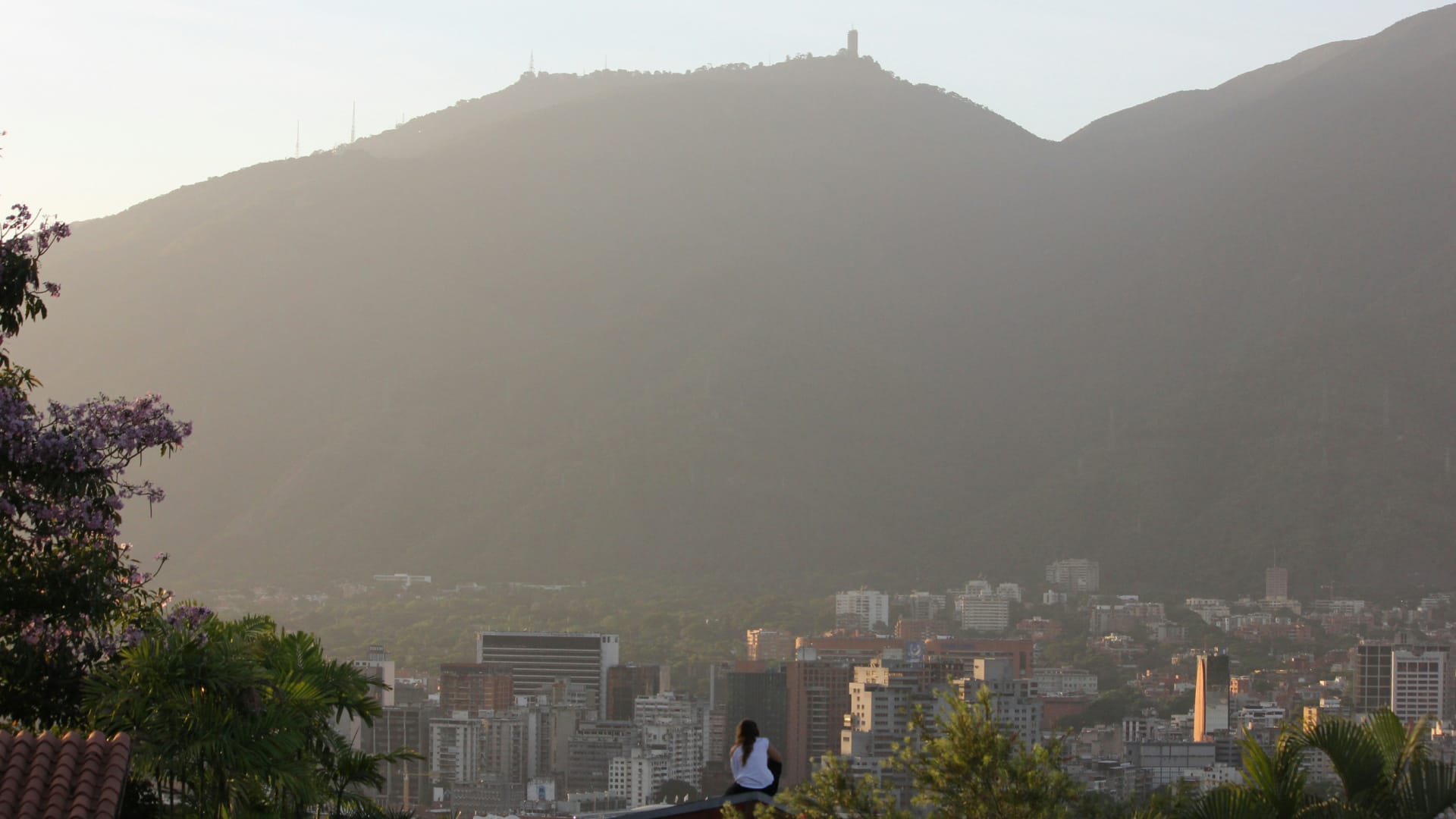In Venezuela’s presidential election on July 28, Edmundo González won about two-thirds of the vote, routing the incumbent president, Nicolás Maduro—but Maduro declared victory, anyway. While the country’s National Electoral Council, which Maduro appointed, said he’d won 51 percent of the vote, paper receipts from across the country showed a landslide for González.
More than a decade ago, Maduro was chosen by his predecessor, President Hugo Chávez—the socialist populist who dominated his Venezuelan politics from 1998 until his death in 2013—to replace him. Like Chávez, Maduro ruled as an autocrat—and drove the country’s economy to ruin. Venezuela’s abundance of oil once made it among Latin America’s wealthiest countries; now, about 82 percent of the population lives in poverty.
After Maduro claimed victory in July, protests broke out across Venezuela, and the regime responded with mass arrests. The U.S. and dozens of other Western countries have recognized González’s victory and called on Maduro to step down—but the authoritarian powers of China, Russia, Iran, and Cuba are still backing him, while the regional players of Brazil and Mexico are working to negotiate a way out of the impasse.
So how long can Maduro hang on?
Moisés Naím—Venezuela’s former minister of trade and industry, and the former director of its Central Bank—is a distinguished fellow at the Carnegie Endowment for International Peace in Washington and the author of The Revenge of Power. To Naím, Maduro can still count on two sources of power: international support and domestic repression. China is backing Caracas in multilateral organizations, while Cuba is effectively managing the Venezuelan economy—and security forces are crushing the opposition at home. Still, Naím says, the resounding electoral defeat caught Maduro and the government by surprise; and video footage spreading on social media of authorities torturing people from the opposition suggests what such violence often suggests: The regime is anxious …
Michael Bluhm: Maduro has legitimately won elections in the past, as Chávez did before him. Why did so many Venezuelans vote against Maduro this time?

Moisés Naím: Poverty, inequality, corruption, a lack of personal safety—and that’s just to start. Everyday citizens got fed up with Maduro’s corruption, lies, and repression.
The government lacks a vision, which is surprising. Chávez and Maduro have been in power for more than 25 years, but they’ve never really offered a vision for the country’s future. No Venezuelan can tell you where the government wants the country to go.
Bluhm: Chávez and Maduro’s core supporters used to be the country’s poorer people, while the elites and middle classes opposed them for the most part. But now it seems like Maduro’s lost that base. What happened?
Naím: There’s a new reality for the poor now: hunger and lack of jobs. It’s dismal enough that more than 7.5 million Venezuelans have left the country. Every young person with the means to go is getting out.
That’s not just an economic downturn or some business cycle. This is something else. Corruption, repression, and ineptitude have devastated this country’s economy.
Bluhm: From what we can tell, Maduro still got about a third of the vote. Who’s still voting for him?
Naím: Mostly it’s the armed forces, paramilitaries, and the regime’s armed thugs. Note the advantage over the opposition here: The opposition is unarmed and untrained—and they don’t have a militia.
It’s dismal enough that more than 7.5 million Venezuelans have left the country. Every young person with the means to go is getting out.
Bluhm: Military support is usually critical for autocratic regimes. What do we know about the military’s relationship with Maduro in Venezuela?
Naím: Those in control of the various armed forces—the army and the air force, for example—have a strong alliance with the government. Some of the most harrowing scenes since the elections are videos on social media showing officers torturing their colleagues who weren’t enthusiastic enough about the Maduro government.
This is a militarized government—a strong autocracy trying to masquerade as a democracy.
Bluhm: And the economic elites? How would you say they tend to feel?
Naím: The economic elites today are new—they’ve become very wealthy in a very short time. There are billionaires in Venezuela today who were not rich by any means even a few years ago. The regime looted the country’s economic wealth.
Venezuela is a failed state in many ways, and Cuba has essentially taken over its economy. The Cuban government has a strong influence over Venezuelan policies, so Cubans run a lot of the economy now.
Bluhm: What other countries are supporting the regime?
Naím: Maduro has support from Russia, China, Iran, Belarus, Honduras, and Nicaragua.
Bluhm: About Russia, China, and Iran: There’s an argument that these countries—autocratic regimes that have the most troubled relationships with the U.S. and the West generally—are cooperating to undermine democracy around the world. Is that why these faraway regimes are supporting Maduro in Venezuela?
Naím: It’s a good question. Maduro has different categories of supporters, and one is the autocratic countries that want to present themselves as democracies: Russia, China, and Iran.

Russia loves the idea of having a close relationship in the United States’ backyard. But Moscow and Caracas don’t have a major economic connection—just some energy and oil deals.
China has a very significant presence in the country, though. And then there’s Iran. Their involvement is a little surprising.
For other countries, geography forces them to be part of the story. Gustavo Petro, the president of Colombia, has already said that any instability in Venezuela will affect stability in Colombia. Brazil and Mexico are concerned, too. They’re not supporting Caracas, but they’re very active. They’re trying to find a way out.
Bluhm: How much does Maduro depend on that international support? And how much can he really depend on it?
Naím: These countries are as much mercenaries as allies. Their support is transactional.
That said, Maduro can now count on support from a superpower: China. Beijing supports him in multilateral organizations, public statements, official visits, and so on. With such a powerful backer, the standoff over the election could turn into a kind of frozen conflict. It’s possible that nothing will change for a long time.
Bluhm: And yet the United States and other Western countries have recognized González as the winner, and they’re calling on Maduro to leave office. How much pressure can they put on him to give up power?
Naím: It’s unclear. A lot of that pressure is covert.
Maduro is isolated from the democracies of the world—but he’s very well connected with the autocracies.
At this point, the domestic opposition is leaning hard on the regime. To Maduro’s surprise, he couldn’t steal the election. He was caught off guard by the opposition’s capacity to organize in the face of a government that controls the country so tightly. They’d put so many obstacles in the way of the opposition.
The election result caught Maduro and his government by surprise, too. They weren’t expecting such a united opposition, with sophisticated positions and powerful candidates. Maria Corina Machado, the opposition’s leader, has an approval rating above 80 percent. They know their way around cyberspace, too.
Bluhm: You mention the regime’s violent crackdown on the opposition. What’s the extent of it?
Naím: The people running the country have spent years undermining democracy in all branches of power: executive, legislative, and judicial.
Torture is a central feature of the system. This is a 21st-century regime that uses medieval techniques. The government is torturing Venezuelans just for having said they disagree with it.
After the election, Maduro’s security forces launched what’s called Operation Knock-Knock. Authorities are coming to people’s homes and arresting anyone who’s publicly opposed Maduro, whether in the streets or on social media. The police don’t have warrants. They just come in and take people away in front of their families. Sometimes the family members are taken, too.
All this extreme repression reveals how insecure Maduro feels about his grip on institutions.
Bluhm: How insecure do you think his position is?
Naím: Maduro is isolated from the democracies of the world—but he’s very well connected with the autocracies.

Here’s what’s interesting, I think: The categories of left and right no longer capture the nature of these political dynamics—in Venezuela or elsewhere. We have seen governments that claim to be from the left, like Maduro’s, pursuing economic policies that have long been central to market-friendly, right-wing governments; and we now see right-wing politicians and governments embracing ideas traditionally associated with the left. Maybe today, when we want to categorize a government, we should start not with these outdated terms but with the government’s level of autocracy.
Bluhm: And what would Venezuela’s be?
Naím: The Maduro regime is a dictatorship, period. There are no democratic checks and balances. Venezuela’s Supreme Court reports to Maduro. The National Electoral Council reports to Maduro. The executive and judicial branches depend entirely on Maduro. The economy also depends on Maduro. The repression? That’s Maduro, too.
Beyond autocracy, another important variable is performance. Across the world, we see people fed up with governments that don’t know what they’re doing. It’s not about ideology; it’s just a question of competence. People aren’t tolerating incompetence.
Some political leaders are trying to use populism, polarization, and propaganda to compensate for their lack of performance, whether in the economy, health care, or education. In Venezuela, all these systems are collapsing. Performance is a central issue.
The Maduro government has long been great at crafting slogans and coming up with bells and whistles to attract attention. But it’s striking how incompetent the regime has been. Still, while they’ve been inept at running the country, government officials can boast at least one accomplishment: They’ve managed to steal billions of dollars.
